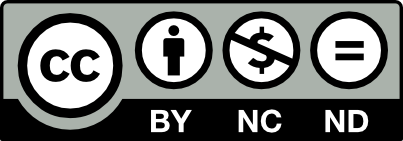Studio esplorativo e prospettico sullo stato psicologico dei pazienti pediatrici oncologici e dei caregivers e neuropsicologico dei pazienti
DOI:
https://doi.org/10.23823/jps.v5i2.89Resumen
Lo studio, esplorativo e prospettico, approvato dal Comitato Etico per la sperimentazione clinica delle province di Verona e Rovigo, (prot. n.46882/2015) ha come obiettivo quello di conoscere lo stato psicologico, dopo la prima diagnosi di malattia dei pazienti oncologici pediatrici con vari tipi di tumore, e quello del genitore, con follow up a 3 e 12 mesi; e per i pazienti lo stato neuropsicologico. Sono stati utilizzati per i pazienti: TAD e BVN-batteria di valutazione neuropsicologica per le età: 5-18anni; HADS per i caregivers. Hanno completato lo studio 8 coppie paziente-caregiver con varie diagnosi, che hanno necessitato di chemioterapia. Nel basale, all’HADS, il 50% dei caregivers ha un punteggio patologico di ansia. Non risulta nessun punteggio che rilevi distress nel paziente. All’ultimo follow up, dopo un anno dall’inserimento nello studio, l’8% dei familiari ha ansia patologica. Alcune funzioni cognitive hanno un peggioramento nel corso dell’anno dello studio: memoria a lungo termine (MLT) e test di fluenza fonemica (TFF).
Descargas
Descargas
Publicado
Número
Sección
Licencia
Derechos de autor 2021 Luisa Nadalini, Margherita Zanoni, Manuel Pauciullo, Luigi Alberto Gozzi, Massimiliano de Bortoli, Simone Cesaro

Esta obra está bajo una licencia internacional Creative Commons Atribución-NoComercial-SinDerivadas 4.0.
Gli autori che pubblicano su questa rivista accettano le seguenti condizioni:
- Gli autori mantengono i diritti sulla loro opera e cedono alla rivista il diritto di prima pubblicazione dell'opera, contemporaneamente licenziata sotto una Licenza Creative Commons - Attribuzione che permette ad altri di condividere l'opera indicando la paternità intellettuale e la prima pubblicazione su questa rivista.
- Gli autori possono aderire ad altri accordi di licenza non esclusiva per la distribuzione della versione dell'opera pubblicata (es. depositarla in un archivio istituzionale o pubblicarla in una monografia), a patto di indicare che la prima pubblicazione è avvenuta su questa rivista.
- Gli autori possono diffondere la loro opera online (es. in repository istituzionali o nel loro sito web) prima e durante il processo di submission, poichè può portare a scambi produttivi e aumentare le citazioni dell'opera pubblicata (Vedi The Effect of Open Access).









